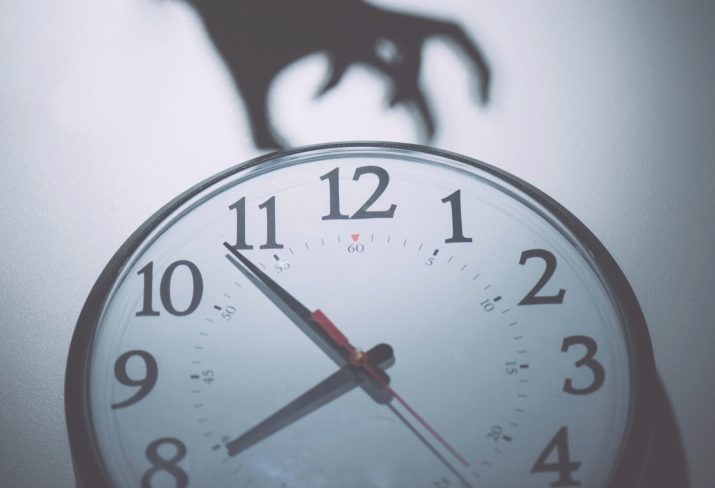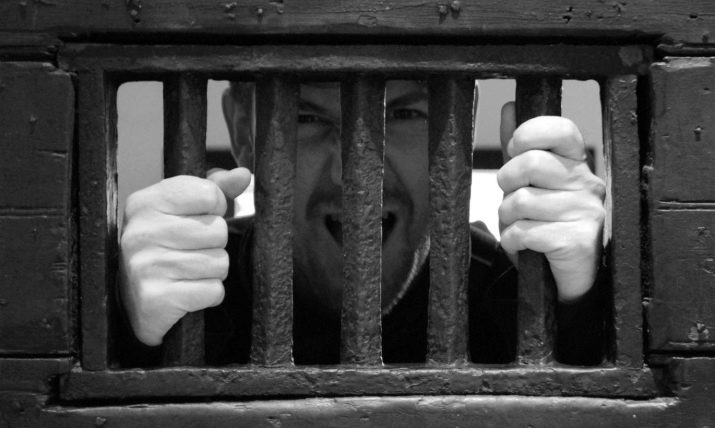Chronophobia: what is it and how to deal with it?

There are many people who are acutely worried about the loss of their own time. Sometimes this fear degenerates into a phobia. To find an effective treatment, it is necessary to thoroughly understand the features and causes of an uncontrollable fear of the passage of time.

What it is?
Chronophobia (from the ancient Greek chrono - "time", phobos - "fear") is a neurotic fear of time. A person experiences an all-consuming horror in front of instantly flying hours and years, inevitably leading to death. Most often, an overwhelming fear arises at the moment of waiting for a very important or desired event: a special occasion, wedding, exam or watching your favorite program. A person painfully begins to count down the months, days, minutes until the expected moment. Life turns into a complete nightmare.
This phobia can occur spontaneously at any one during the period of strong psychoemotional stress. For example, some teenagers today experience inexplicable excitement at first when choosing an educational institution. As the time before graduation shortens, the anxiety builds up and gradually turns into fear. And a few weeks before the graduation party in a teenager who has not yet decided on a future specialty, anxiety can transform into a phobia.

Young people often develop anxiety disorder if they want to get work done quickly, because they fear not having time to complete the task by the appointed time. As a result, the task is performed poorly, but much earlier than planned.
Most often, a phobia occurs in suspicious individuals with an unstable psyche.Sometimes people in their 40s and 50s look back anxiously and realize how much time has been wasted. They have a fear of not being able to do something very important in life. The elderly face chronophobia as a result of their understanding of the inevitability of death.
For the first time, the phobia was recorded during the period of observation of the convicts for a long time. To prisoners serving such a long term seems to be something beyond reality. Within a short time, the initial intensity of symptoms decreases.

A person turns into a creature not interested in anything with primitive needs. This condition is called prison neurosis. This is one of the most difficult phobias due to the lack of a tangible object of fear.
Causes of occurrence
A variety of reasons can contribute to the appearance of this pathology:
- hereditary predisposition;
- childhood traumatic event;
- unsuccessful experience of the accomplished action, which brought not quite the desired results;
- transferred stress in anticipation of some event;
- imposed fear from the outside: from the media, books, films, messages from friends or acquaintances;
- stressful situations: job loss, divorce, death of a loved one;
- health status: hormonal imbalance, surgery, heart disease, the onset of menopause;
- depression, depression.
Sometimes chronophobia can appear quite suddenly because of the accidentally heard phrase about the transience of life.

Symptoms
Unlike most phobias, this anxiety disorder is constantly present in a person's life, and does not appear periodically with a specific meeting with an object of fear. Sad thoughts haunt a person mainly in the evening and at night. He begins frantically to sort out in his head how many things he managed to accomplish in a day, while focusing on the unfinished process.
Chronophobe begins to panic. He wants to run away somewhere far away, to hide.

Simultaneously with pathological fear, the following physiological symptoms appear:
- sharp jumps in blood pressure;
- tachycardia;
- rapid breathing;
- digestive system disorder;
- dilated pupils;
- trembling legs and arms;
- fainting;
- increased sweating.
Psychological symptoms include unwillingness to plan long-term affairs.
Young chronophobes prefer to live one day. They are afraid to face a feeling of lack of time.

Age patients, on the contrary, make detailed plans, fearing something to be out of time. Phobia sufferers have the following psychotic symptoms:
- constant internal stress;
- nervousness;
- feeling of discomfort;
- insomnia;
- feeling of irretrievable loss of time;
- a feeling of unreality of what is happening;
- attacks of depersonalization.
Refusal to wear watches is a behavioral sign of pathology.
The sight of a dial with hands can be frustrating. Excessive mention of time often provokes a panic attack. A harmless watch becomes an object of fear.

How to treat?
At the first signs of a phobia, it is necessary to contact an experienced specialist who most often prescribes complex treatment for the patient. First, the root cause of the appearance of horror in front of the inexorably rushing time is found out. Then, special situations are simulated that help get rid of the fear of the transience of life.
For those in dire need of pharmacological treatment, the psychotherapist prescribes tranquilizers, antidepressants, antipsychotics. Medicines must be used strictly as prescribed by a specialist and under his direct supervision. Taking short courses of medication improves overall well-being, but does not completely eliminate the phobia.
There are many effective psychotherapeutic techniques.Experts recommend dividing the task execution into several time intervals and acting in stages.

This phobia manifests itself in each person in its own way, therefore there is no universal method. The psychotherapist selects an individual approach to each person. Cognitive Behavioral Therapy is used to train the patient to control their thoughts and emotions. Parallel formed critical attitude to the object of fear.
The specialist can advise hypnotic sessions... To a person in a trance state, the hypnologist gives the installation for the correct response to the perception of the stimulus. Negative thoughts are gradually forced out of consciousness. The person is tuned in a positive way. The hypnologist directs the chronophobe's psyche in the right direction. After completing the full course, the negative symptoms of the disease disappear.
Neuro-linguistic programming has also been used successfully in the treatment of exaggerated anxiety due to the fast running time.

Preconceived notions about the future are transformed into positive thoughts.
A person is able to help himself with regular auto-training, which reduces stress levels. The far-fetched neurotic fear of wasting time leads to exhaustion, but in reality it does not pose any danger. Self-training helps to change the wrong attitude.
Affirmations, relaxation, yoga classes are good distractions from disturbing thoughts. An active lifestyle helps to increase endorphins and hormones of happiness and joy. Tinctures of hawthorn, valerian, peony and herbal tea based on peppermint, oregano, lemon balm soothe the nervous system well. The presence of pets has a beneficial effect on the patient.
Self-medication is effective at the initial stage of the disease.
For the top 5 phobias, see below.









This disorder arose in me because of the exam, and even accompanied by a song, which I first tried to drive away, considering it an "ear worm", but then I realized that it was still something else, the song just became a defensive reaction ... ( by the way, for a long time with her help she justified the absurd behavior during preparation, as well as after receiving high marks).